Student Experience: The Priority of Spring Arbor’s Online MSN Program

Student experience is important for all students, and especially working nurses who are already pressed for time.
Nurse schedules are unpredictable—shifts are long and there’s always the chance for overtime.
Due to the challenging nature of their work, nurses may find it difficult to focus on their own needs. For those who want to pursue career development, an ideal student experience is essential for success.
In an online program, a negative student experience will add challenges to your workload or could even prevent you from reaching your goals. In turn, a positive student experience will offer the support and resources you need to see your vision through.
At Spring Arbor University (SAU), we understand the role that student experience plays in quality nursing education.
This article will highlight how SAU’s online Master of Science in Nursing (MSN) program is designed to prioritize student experience and the busy lives of working nurses.

A Student Experience Tailored to Working Nurses
“I chose Spring Arbor for a few reasons. I appreciated that the program included an onsite residency to gain additional skills, training, and education.
I also felt the classes of seven weeks on, one week off, would offer flexibility while working full-time.” —Angela Applegate, MSN-AGNP
SAU’s online MSN program offers a flexible student experience with education that is relevant to the real-world of advanced nursing practice.
Read on to hear from other MSN students as we answer frequently asked questions for the online MSN program.
Click here to read everything you need to know about managing work while attending nursing school.

Q: How Can I Earn an MSN Degree While Working Full-Time?
“[SAU’s] online classes have been beneficial for me because I have been able to continue working as I normally do, and do my reading and assignments at night after the children go to sleep.
I was also able to plan a wedding, go on a honeymoon, and have a baby during this whole process and EVERY single teacher and advisor was supportive and willing to help in any way.
They walk with you step by step during the program to make sure you succeed in every aspect of life and your future career.” —Amber Fox, MSN-FNP
Spring Arbor nurses enjoy a unique student experience compared to their peers in traditional on-campus programs:
Multiple start dates allow students to earn their degree when the time is right for them.
Most schools offer two to three start dates per year: fall semester and winter semester, with just a few course offerings during the summer.
However, the life of a working nurse doesn’t always conform to the usual academic calendar. By contrast, SAU offers six start dates per year.
Take just one course at a time.
Courses at the master’s level typically demand up to 12 hours per course per week. In most traditional programs, you would be expected to do three courses per 15-week semester. That’s 36 hours per week committed to coursework.
We understand nurses need a flexible student experience and have limited time in their schedules. That’s why our online MSN students just complete one course at a time (exclusions may apply).
This pace lets you focus on your studies, creating a manageable workload and positive student experience.
Our flexible 7-1-7 model gives you time to recharge between courses.
Each course takes seven weeks. Once you’re finished, you get a week off to relax and recharge before your next course starts.
Feedback on student experience has shown that these gaps in between classes help students avoid burn-out, ensuring that you get a well-deserved break before your next course starts.
Freedom to work around your schedule.
A nurse’s life revolves around the needs of the hospital or clinic where they work. That might mean working doubles three days in a row, or a steady 3:00 pm to 11:00pm shift.
SAU’s student experience prioritizes your life in turn. There are no required log-in times and no lectures that must be watched live.
Each week, you have complete freedom to work when your schedule allows, and all course materials are available whenever you need them.
We also have unique bridge options for ADN/ASN nurses, which allow nurses without a bachelor’s degree to concurrently earn their BSN and MSN degrees.
Together, these features of the Spring Arbor student experience make it possible for a working nurse to earn an MSN degree without sacrificing time on the job.

Q: What is a Student Success Coach?
“My Student Success Coach has played a significant role in this program. Email reminders that courses are opening and check-in emails and phone calls were a pleasant surprise.
It was comforting to have an additional support person just a number away. My Success Coach was like my own cheerleader.” —Angela Applegate, MSN-AGNP
From the first day of class on, you’ll be paired with a dedicated student success coach.
Your student success coach will get to know you as a person, and is there to help you find balance between work, school, and home life.
During the MSN program, your student success coach will:
- Offer guidance and a supportive student experience
- Answer any questions or concerns you have
- Provide helpful resources as needed
- Assist you with time management
- Be your personal advocate as you work toward your degree
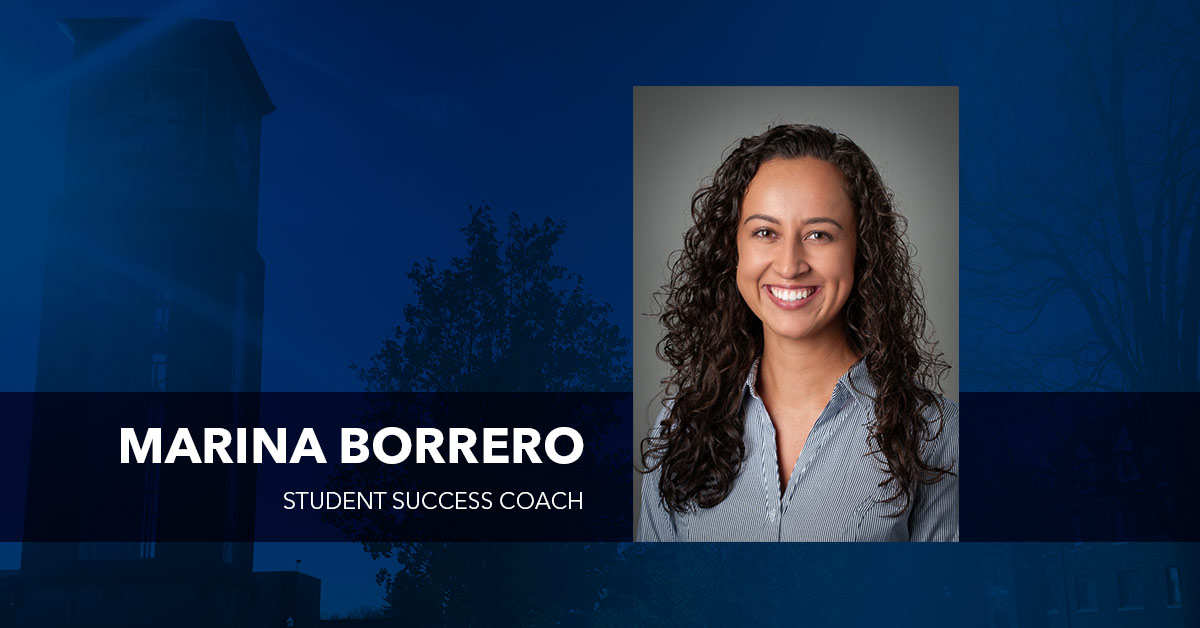
“The highlight of my day is building relationships with my students,” says Student Success Coach Marina Borrero.
“I communicate with them on every level: it can be about their class, feedback on their student experience or a scheduled follow-up on our action plan to be successful.”
We asked Marina if she had an example illustrating how she helps improve student experience.
“I had a student who didn’t feel like technology was her friend,” she recalls. “In order to overcome this, we made weekly appointments to go through Blackboard [SAU’s online portal] and check out the week's assignments."
“Eventually, she told me she wanted to challenge herself by venturing through the class solo then call me if she needed assistance," Marina says.
“She excelled past her own expectations! It was an incredible turn-around, and I continue to be proud of her growth through the program.”

Q: What Kind of Relationship Do Online Students Have With Their Professors?
“The faculty are very supportive, especially for being an online program, and are quick to respond. But the most amazing thing about them is their understanding that most students have families and work, so they are able to make arrangements when life happens and situations arise.
For example, my 7-year-old daughter had to have surgery, and they were able to give me extensions with no penalties.” —Israa Mohamed, MSN-FNP
An essential part of student experience in any program is the quality of teaching and accessibility of the faculty to learners.
SAU students quickly discover that professors connect to them as individuals, and take a direct interest in their education.
On top of regular video meetings with your professors, when you have questions it is easy to get in touch with them by email. Many also handout their personal phone number, so they can be available to students as needed.
“Faculty and staff are very approachable,” says Ray Jones, an MSN-FP student. “Even Al Kauffman, who directs the program here at Spring Arbor University is open and willing for you to ask any question at any time.” Listen to Ray speak in more depth about the program in the video included below.
The relationship you build with your instructors during coursework enhances your student experience, especially during clinicals.
You will spend between 500 and 625 hours on your clinical practicum (depending on your degree concentration), during which you will be in regular contact with SAU faculty who oversee the placement.
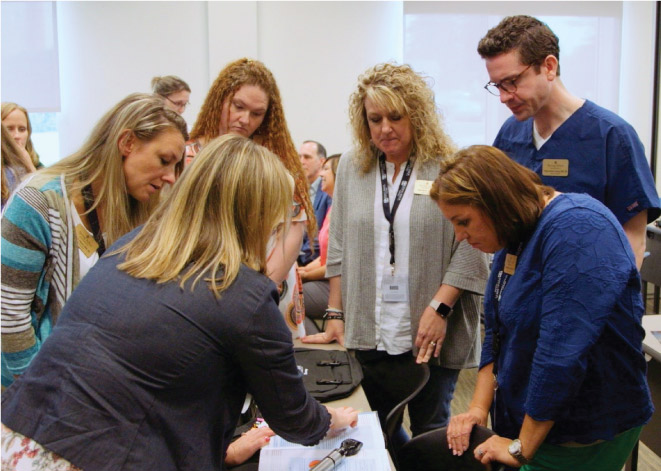
Throughout your studies, you will also develop relationships with the other students in your cohort. Most of our classes have about 20 to 25 students.
“My favorite part of Spring Arbor is all the people I've met,” says nursing major Jess Khoury. “They understand how it is to be trying to learn this major but also be a Christian in it as well. We're able to help each other grow and learn.” Hear more from Jess in the video below.
You’ll engage with your classmates through our active online discussion boards, and during a face-to-face nursing residency where you will get to practice your clinical skills on each other.
SAU’s student experience focuses on the value of connection. Many of our students enjoy the bonds they form with other nurses—they are a part of a community and share the same goals.

Q: What Professional Benefits Does an SAU Master’s in Nursing Offer?
“I firmly believe, ‘you get out of this program, what you put into it. I have gained more knowledge, confidence, and have witnessed my own growth since starting the program.
I am more confident in my current role and feel well prepared to continue learning as I embark on the next chapter of my career.” —Angela Applegate, MSN-AGNP
An MSN degree is an essential step to becoming a nurse practitioner (NP). NPs can do many of the same tasks that doctors do, including prescribing medications, examining patients and treating illnesses.
Nurse practitioners are among the most highly trained nurses in the field, and enjoy a variety of professional advantages:
- The median annual salary of a nurse practitioner is $107,460, or as much as 60% higher than the average for a registered nurse (RN).
- MSN holders have a clear pathway to more senior positions in hospitals, clinics, doctor’s offices and care facilities. In addition to better pay, having a senior role also makes it more likely you will work regular daytime hours.
- Nurse practitioners have greater autonomy than other nurses. Due to their advanced skills, in some states NPs are even allowed to open and maintain their own practices without a doctor’s supervision.
U.S. News & World Report recently named nurse practitioner as the fifth-best profession of 2021 — two places ahead of physician (source).

Spring Arbor understands the need to build competency in the field, and has been successful in helping online MSN students become licensed nurse practitioners. This is a testament to the effectiveness of our student experience.
In fact, 88% of our online MSN graduates pass either the American Association of Nurse Practitioners (AANP) or American Nurses Credentialing Center (ANCC) exam on their first attempt. 100% of test-takers pass on the second.
SAU’s student experience combines rigorous curriculum with attentive faculty to set graduates up for success with NP certification.

Q: Does SAU Have Options to Customize My MSN Degree Path?
“I definitely used what I learned throughout the whole program. It made me more confident in my current role, and going into my new role as a provider.” —Ashley DeCraene, MSN-FNP
For nurses who already hold a bachelor’s in nursing and want to become nurse practitioners, there are two degree concentrations available. Each path leads to a unique student experience.
Below are degree-paths for Bachelor of Science in Nursing (BSN) holders. Read our MSN-NP program overview by clicking here.

Family Nurse Practitioner — FNP Degree:
Broaden your scope of practice and earn a position of autonomous care with the clinical knowledge and skills needed to treat patients from infancy through adulthood.
Adult-Gerontology, Primary Care Nurse Practitioner — AGNP Degree:
Master primary care knowledge and clinical reasoning skills to best care for adolescents, adults and the elderly.
Psychiatric Mental Health Nurse Practitioner - PMHNP Degree:
Gain clinical skills and knowledge to diagnose and treat psychiatric mental health disorders.
Primary Care Pediatric Nurse Practitioner - PNP-PC Degree:
Develop a broad range of skills that enable you to work with pediatric patients in preventing disease and promoting overall health.
MSN-NP specializations share some core coursework, then offer opportunities for focused learning based on your intended patient population.
FNP students can complete the program in 30 months (including 625 practicum hours).
AGNP students are able to complete their studies 24 months (including 500 practicum hours).
PNP students can complete their respective programs in 28 months (including 530 practicum hours).
PMH students can finish their program in 28 months as well (with x practicum hours).
Regardless of specialization, the NP role is a popular career choice for many — more than 270,000 NPs are currently practicing nationwide (source).
For those interested in transforming healthcare in other ways, SAU also offers the following programs:
- MSN-Education
- MSN/MBA dual degree
Learn more about all of our MSN programs here.

Q: What Options Does SAU Offer ADN/ASN Students?
“There are a lot of nurses who cannot go to a traditional program. We have a program that allows them to come and not just change their role, but change their lives.” —Dr. Al Kauffman, Dean, SAU School of Nursing and Health Sciences
Many MSN students do not yet hold a BSN and are looking to advance with a two-year associate’s degree (ADN/ASN).
Spring Arbor can help you expedite the process of getting your master’s with our RN-MSN degree bridge programs. These programs allow you to concurrently earn both your BSN and MSN degrees, adding convenience to your student experience.
Following the MSN program format, you’ll have the opportunity to choose from one of our MSN degree concentrations (e.g. MSN-NP-FNP, MSN-NP-AGNP, MSN-NP-PMH, MSN-NP-PNP, MSN-Ed. and MSN/MBA).
Spring Arbor’s RN-MSN bridge programs save time and are cost-effective.
You’ll also enjoy other benefits such as:
- A targeted BSN curriculum that addresses any gaps in your knowledge without forcing you to relearn what you’ve already been taught
- Clinical placements in settings such as cardiac, orthopedic and psychiatric facilities
- Full support from faculty and coaches during your practicum
- The same flexible, accessible student experience enjoyed by our community of nursing students

Q: What Does a Christ-Centered Educational Philosophy Mean?
“I had never thought about a Christian college before because my undergraduate school was not affiliated. God has opened so many doors to allow me to pursue my dreams.
Knowing that every teacher is using scripture to further educate us is inspiring. It has also helped me grow in my faith and understanding of God’s word.” —Amber Fox, MSN-FNP
SAU is dedicated to honoring Jesus Christ and has embedded the ethical teachings of Christianity into our educational approach.
We believe this enriches our student experience, as you embark on your own journey.
Our faith-based philosophy will help you grow holistically, and you’ll graduate clinically competent while in accordance with national industry standards.
SAU’s enhanced educational philosophy will allow you to:
- Be a caregiver in a Christian context
- Find fulfillment and purpose in your work
- Tend to both the physical and spiritual needs of patients
- Return the profession to its core values
Our MSN students discover our approach adds connectedness to our community — it also deepens their personal faith.
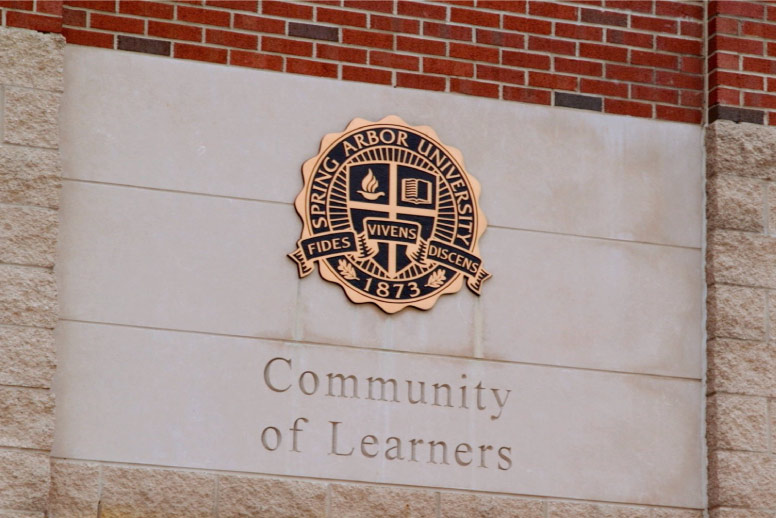
Not all of our students follow the same beliefs, but they still share a rewarding student experience.
SAU is also inclusive and welcoming of individuals from all faiths.
“In truth, I am not a practicing Christian in the sense that I do not actively practice the religion. I mentioned this to my student advisor at the beginning of my first course because I felt my beliefs may not be fully aligned.
My student advisor was incredible, and I was re-assured that all beliefs are welcomed. Following this conversation, I further appreciated the mission and vision of SAU and found myself learning a great number of new ideas and thoughts that I hadn’t previously considered.
I believe the Christian perspective at SAU is a plus and value its impact on my learning.” —Garrett Chun, MSN-FNP
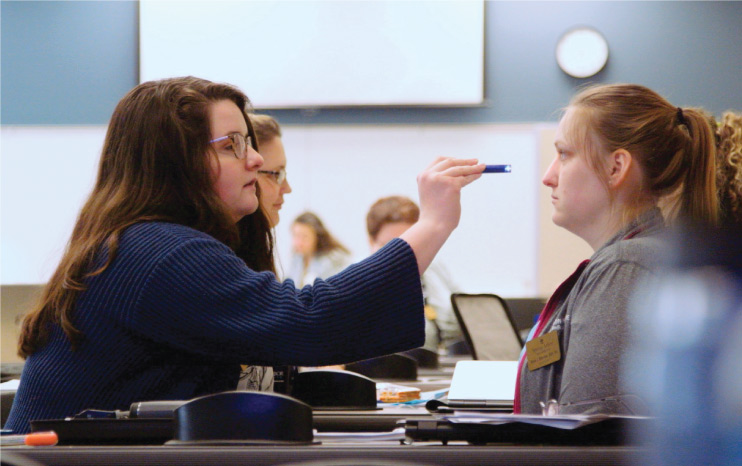
Spring Arbor University: A Student Experience Like No Other
“I still remember the day I got the call that I was approved to begin this program. I screamed, cried, and laughed at the same time.” —Amber Fox, MSN-FNP
With multiple pathways to reach your desired career, the flexibility to maintain your work-life balance and an incredibly bright job outlook, studying at SAU can be transformative.
Our commitment to the ideal student experience starts before you even enroll. From the moment you inquire about the program, a dedicated admissions representative will make sure you have the information you need.
Your admissions representative will answer questions, support you in gathering documents, and help you submit your application. They’ll also be an accessible point of contact until classes start.
SAU’s student experience starts with a supportive application, so you can make sure the MSN program is a good fit and start classes prepared.
“I always talk to prospective students about their career goals, working life and their other responsibilities to help them determine if Spring Arbor University’s online nursing programs will fit their needs,” says representative Courtney Raupp.
“Then I work with them to complete a strong application file to provide the best opportunity for acceptance into the program. Once they’re accepted, I help them prepare for class and encourage them through their first few weeks of school.”
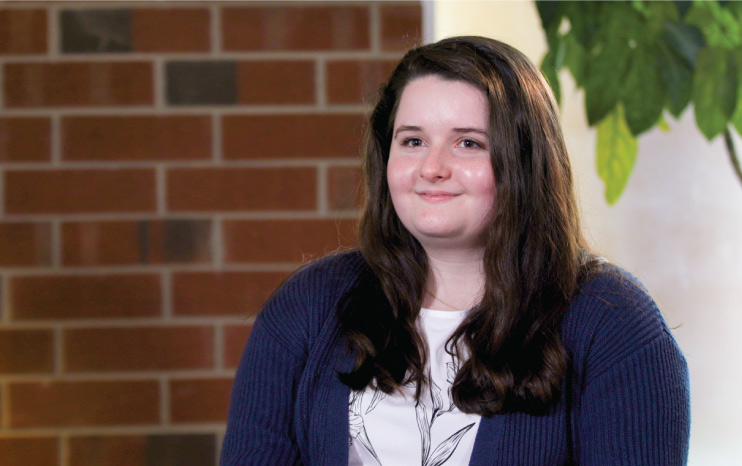
From admissions to your student success coach, to your interactions with faculty, you will be supported every step of your journey.
“Spring Arbor might be an online program,” says MSN-FNP student Kayla Maxwell, “but rarely does it feel like that.”
Learn more about Spring Arbor’s online graduate nursing programs.
Check out Spring Arbor online's top nursing blog posts below.
1. 4 Problems Nurses Face in the Hospital
2. Advantages of Being a Nurse Practitioner
3. What Can You Do With an MSN in Nursing Education?
4. Nurses’ Guide to Medical Missions Trips - Serving Those in Need
5. Your Guide to Finding Credible Medical Information and Advice











